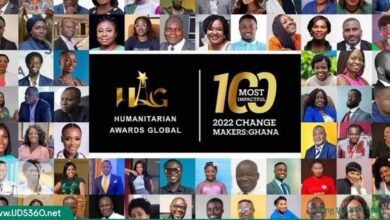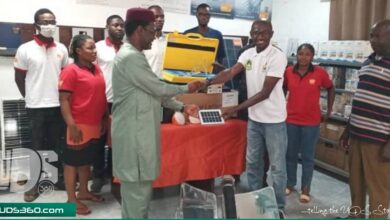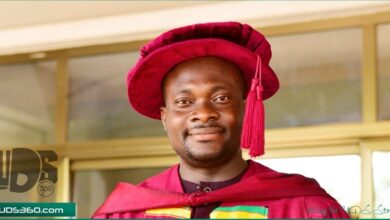
UDS’s Dr. Zarouk Imoro only Ghanaian among 16 for Africa Prize for Engineering Innovation 2024
- The Africa Prize offers a unique benefits package for up to 16 shortlisted participants to help accelerate their business
- Dr. Abubakari Zarouk Imoro of the University for Development Studies (UDS) is the only Ghanaian among the 16 shortlisted innovators in Africa
- Shortlist includes engineers from Botswana, Côte d’Ivoire, Ghana, Kenya, Nigeria, Rwanda, Tanzania and Uganda
- Four finalists will compete for a share of £60,000, with the overall winner receiving £25,000
Champion
Dr. Abubakari Zarouk Imoro is the Head of the Energy Technology Center of the University for Development Studies (UDS).
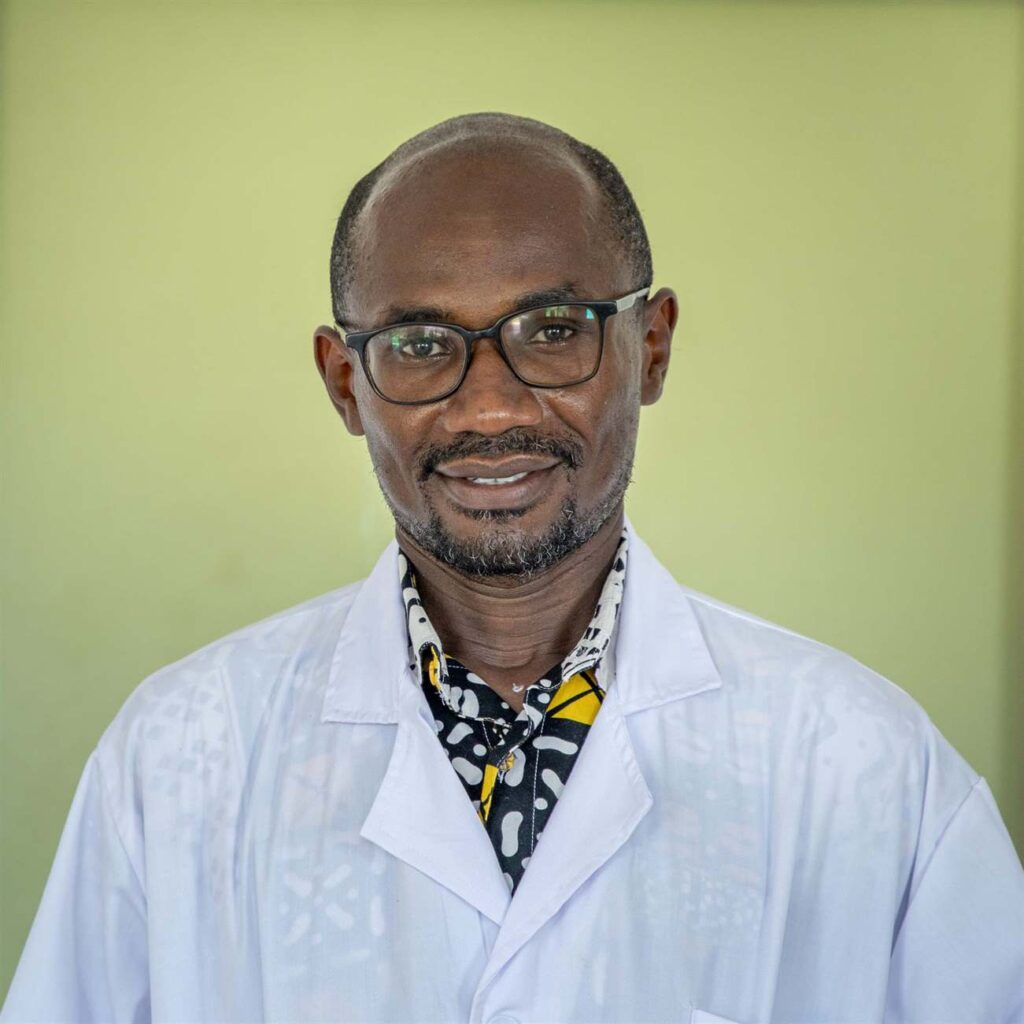
His selection is based on the innovation that;
By generating value from sustainable recycling of faecal sludge, we are creating the incentive for people to responsibly dispose of their waste. We’ve also created an affordable alternative to cotton and leather imports in the textile industry.
Zarouk Imoro (source: africaprize.raeng.org.uk/2024-cohort/zarouk-imoro)
Voting
To vote for Dr. Zarouk’s Innovation you will need to register to attend the final event online here – https://raeng.org.uk/events/2024/june/africa-prize-live-final.
The event comes off on Thursday 13th June 2024.
Based a Facebook comment by Doc., the best time to vote (after prior registration) is between the hours of 3pm to 5pm on the day on the final event.
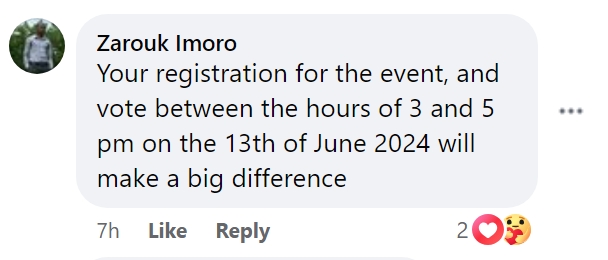
Myco-Substitutes
Ghanaian environmental technologist Abubakari Zarouk Imoro led the creation of Myco-Substitutes in response to the health risks of informal toilets and dumping of faecal sludge.
The treatment process uses viruses known as bacteriophages to feed on and remove bacteria from faecal sludge. Common fungi, such as Basidiomycetes, Rhizopus, Aspergillus niger, and Aspergillus flavus, are then introduced to the remaining solid waste, which functions as a growth medium to cultivate mycelia, the root-like structure of the fungi. Toilet paper in the sludge functions as a carbon source for mycelial growth. After 72 to 120 hours, 10 litres of sludge can produce 500 grams of mycelia for harvest. The ‘Myco’ in the innovation’s name denotes mycelia-based material.
Mycelial threads are used to create an alternative to cotton or synthetic thread for the garment industry. The leather-like fungi mycelia (an alternative to animal hide) is grown in 500 mm x 500 mm sheets for tanning and making bags, belts, and shoes. The strength of cowhide can be achieved by combining several sheets of mycelial leather.
The threads are straightened and combined using natural latex and fibre from the Calotropis procera (giant milkweed) and cotton from the Kapok tree when additional strength is required. The mycelia in combination with the giant milkweed fibre are spun into a yarn with a mass similar to cotton.
The Myco-Substitutes technology, which is in pre-pilot phase, produces between one and five balls of yarn a day. This is dependent on factors including the fungal species used, available space, and the availability of giant milkweed.
Imoro and his team receive faecal sludge (faeces, toilet paper and black water) from wastewater treatment plants for treatment and processing into the growth medium for mycelia cultivation. They analyse it for bacteriophages, which are isolated and cultivated over 72 hours before being added back to the sludge where they kill bacteria present.
The liquid is then treated with chlorine or UV light and can be used for irrigation. The remaining sludge is converted into biochar, which can enrich soil or create environmentally friendly briquettes.
Imoro and his team have created a circular economy for faecal sludge, where value is created from all parts of the waste.
africaprize.raeng.org.uk/2024-cohort/zarouk-imoro
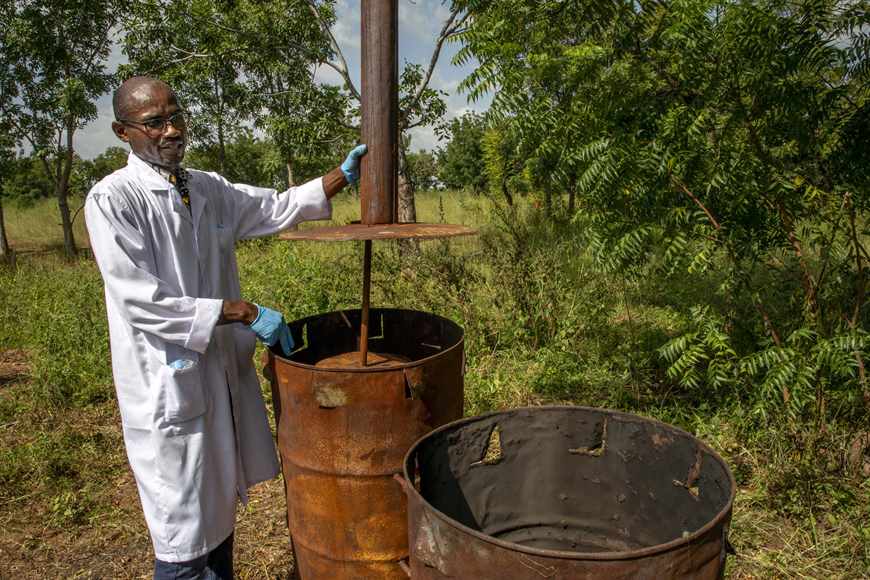
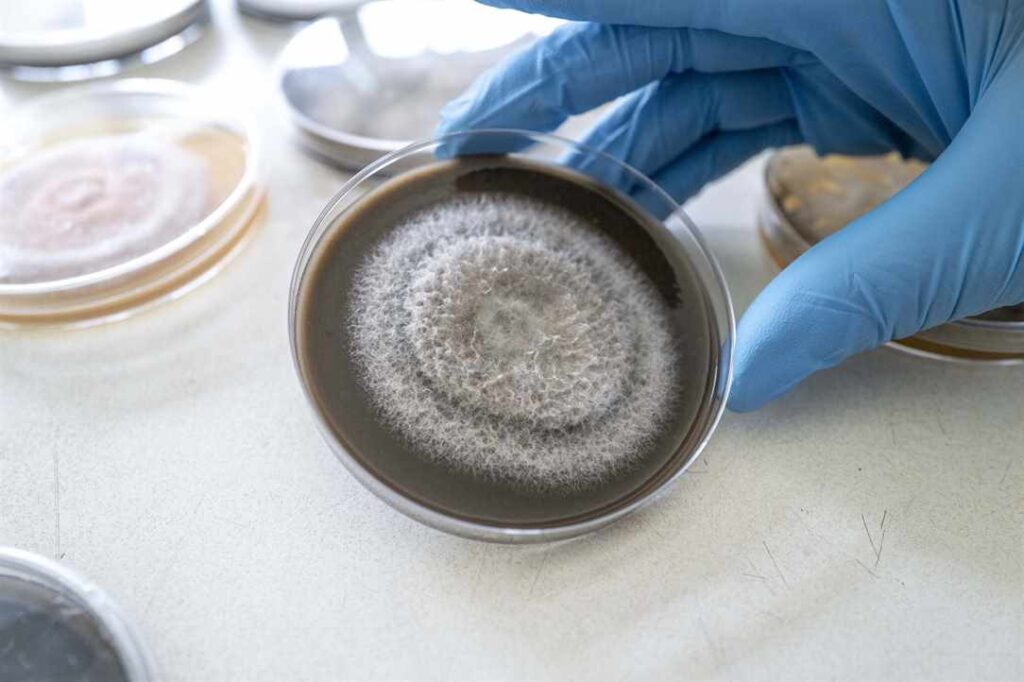
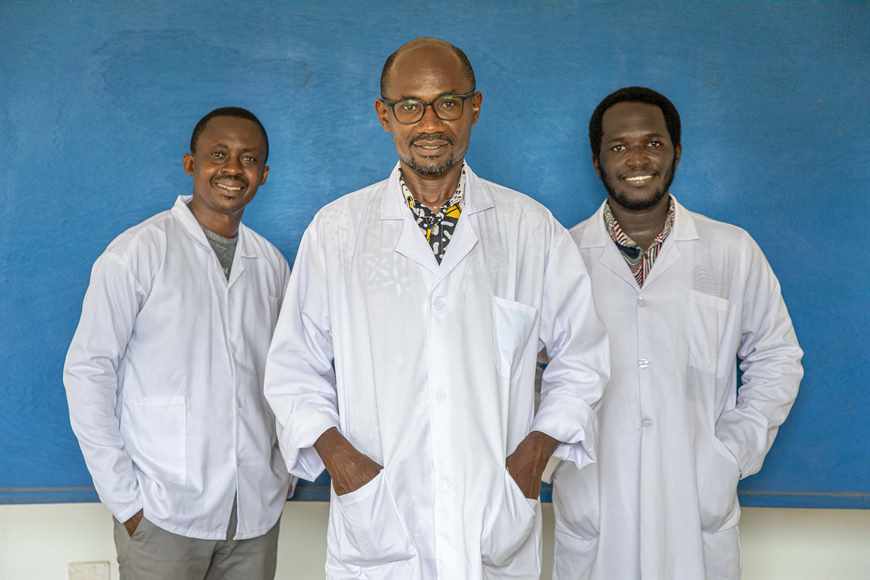
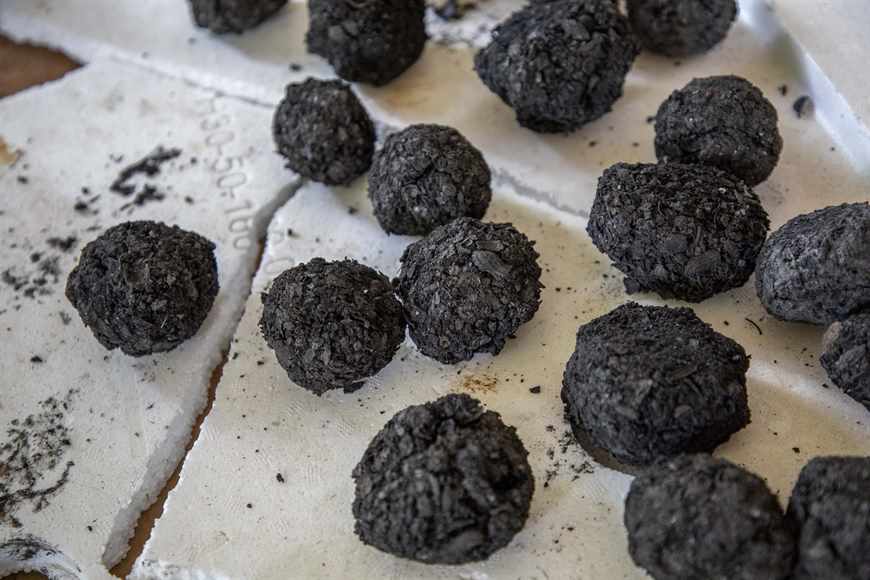
About Prize
The Africa Prize offers a unique benefits package for up to 16 shortlisted participants to help accelerate their business including:
- Access to business and technical expertise and sector specific engineering mentoring.
- Bespoke press coverage and communications support.
- Eight month tailored training programme.
- Access to the Academy’s network of high profile engineers and business experts in the UK and Africa.
- The opportunity for finalists to present their innovation to a judging panel at the Africa Prize showcase event.
- Prize money of up to £25,000.
Sixteen innovators from eight African countries, including Botswana for the first time, have been shortlisted for the 10th Africa Prize for Engineering Innovation.
The Africa Prize, launched in 2014 by the Royal Academy of Engineering, demonstrates how ambitious engineering innovators are protecting the environment and transforming the continent’s economy through scalable solutions. Africa Prize innovators are working to address pan-African and international challenges, including adapting food and water systems for climate resilience, developing low-carbon energy and transport solutions, and improving telecommunications, education, financial services and healthcare.
Shortlisted innovations for the 2024 Africa Prize include roof tiles made from recycled plastic, early detection of agricultural pests and diseases, environmental monitoring of chicken farms, and a fabric made from fungi grown on human waste.
Also featured are innovations aimed at healthier methods of cooking, including low-smoke briquettes made from biowaste, a solar-induction oven and hob, and a biodigester that uses organic waste to generate gas. Clean energy solutions include a large-scale power pack made from repurposed electric vehicle batteries, a solar dryer to enhance small fish farming, and converted electric motorbikes with replaceable batteries.
Other innovations include an automated storage locker, a domestic alert for deaf people, a plug-in device to transform any screen into a computer, and a healthcare platform based on WhatsApp.
Engineering is a fundamental enabler of development and is linked to all the United Nation’s Sustainable Development Goals, impacting healthcare, education, gender equality and the environment. Engineering is also a driver of the African Agenda 2063, the African Union’s blueprint for development over the next 50 years, where it is described as supporting the continent’s goal of being “integrated, prosperous and peaceful… driven by its own citizens and representing a dynamic force in the international arena”.
By being shortlisted for the Africa Prize, innovators benefit from support including business incubation, mentoring, fundraising and communication. They also gain access to the Academy’s global network of high-profile engineering and business experts in the UK, Africa and beyond.
Judges, mentors, and expert reviewers for the Africa Prize for Engineering Innovation have provided more than 4000 hours of support to entrepreneurs since the prize was established, equivalent to more than £10.4 million.
“Winning the Prize opened our business up to many opportunities and provided exposure for our solution to the local and international market,” said 2020 Africa Prize winner Charlette N’Guessan from Cote D’Ivoire in 2023, the first woman to win the prize. “I am happy to see the Africa Prize has inspired many young woman innovators to break down barriers.”
Four finalists will be chosen from the shortlist to present their innovations and business plans to judges at the Africa Prize final in Nairobi, Kenya, in June 2024. The winner will receive £25,000, with three runners up awarded £10,000 each. A One-to-Watch award of £5,000 will be made for the most impactful pitch, as voted by the audience. In 2024, the audience will include some 80 Africa Prize alumni from the last ten years.
Africa Prize alumni have supported more than 10 million beneficiaries through their products or services. They have also created more than 28,000 jobs – including more than 21,000 jobs for women and more than 500 jobs for persons with disabilities – and raised more the USD 39 million in grants and equity funding, directly contributing to 15 of the UN Sustainable Development Goals.
Africa Prize judge Sewu-Steve Tawia said, “The 16 innovators shortlisted for this year’s Africa Prize for Engineering Innovation are contributing to key Sustainable Development Goals including no poverty, health and wellbeing, quality education, affordable and clean energy, reduced inequalities and climate action. What sets these 16 people apart is their determination to solve local challenges, contribute to job creation and seizing the opportunity to scale their innovation across Africa. In its tenth year, the Africa Prize is proud to elevate these local changemakers to global engineering innovators.”
About the prize (raeng.org.uk)



